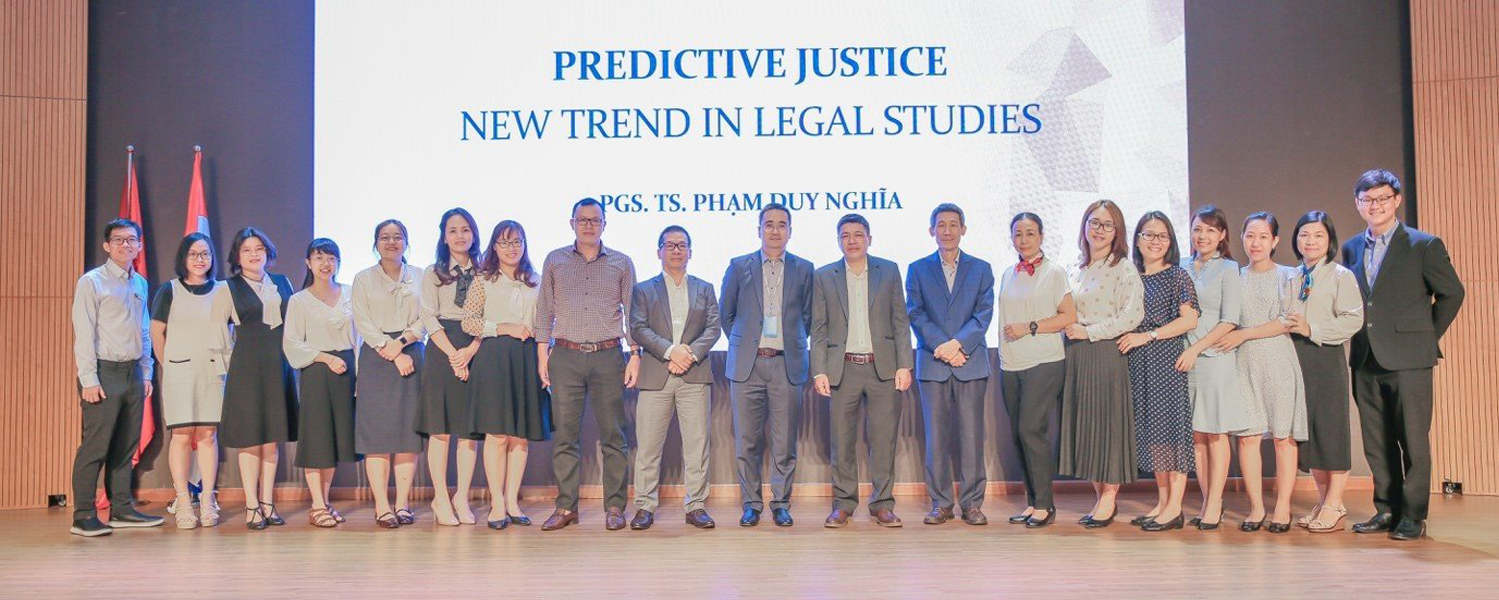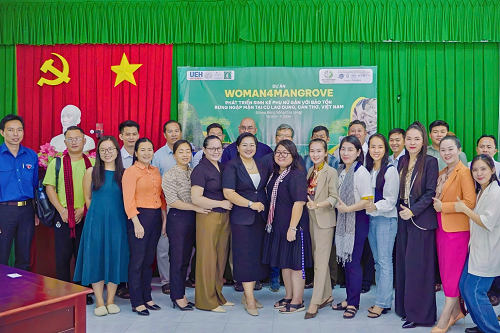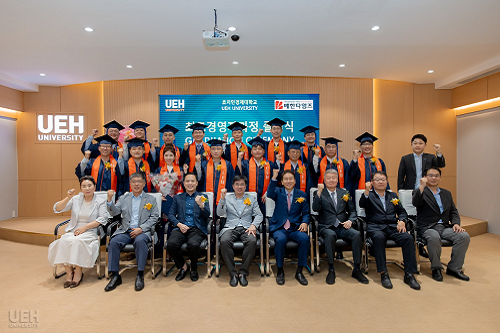
Judicial Judgment: The New Trend In Law Practice
06 Apr, 2021
On the morning of March 17, 2021, at Hall B1.302, Assoc.Prof.Dr Pham Duy Nghia - Director of the Public policy program at Fulbright University Vietnam, member of the Law Science Council, had a seminar on the topic: “Judicial judgment: The new trend in law practice” with UEH students.
The seminar was attended by many guests who are lawyers at law firms, experts and scholars from research units, including lawyer Truong Nhat Quang - Lawyer of YKVN - One of the leading law firms in Vietnam; MSc. Lawyer Le Huu Tri, Trilaw's Executive Lawyer and teachers are lecturers of the Faculty of Law and more than 100 postgraduates, graduate students and students.
According to Assoc.Prof.Dr. Pham Duy Nghia, judicial judgment is a new term, describing an innovative trend of activities to ensure the justice of stakeholders (lawyers, businesses, citizens, prosecutors, investigative agencies) under pressure from technology. It can be seen that, under the rapid change of technology, with the formation and development of new technologies such as AI (artificial intelligence), blockchain, Big Data, machine learning, there has been a wave of investment in startups in the legal technology industry with nearly $2 billion by 2020 and more than 4600 businesses. The boom took place first in the US, UK, China, and more slowly in the European Union.
.jpg)
.jpg)
Assoc.Prof.Dr. Pham Duy Nghia shared at the seminar.
Technology has contributed to creating platforms, tools, such as Casetext, to systematize and analyze judgments; Ravel Law aims to analyze the viewpoints of the court, of each judge, and trend of the judgment of each judge; Legal Robot aims at risk analysis, contract consulting; IBM Watson for legal advice by Artificial Intelligence; Claudette aims to provide legal advice to consumers. Thus, a trend has emerged to use artificial intelligence to undertake many legal services, replacing people, thereby gradually forming concepts such as "predictive policing" (Forecast, investigation of crime. based on big data and Artificial Intelligence); or "predictive justice". It can be seen that artificial intelligence has been and will gradually replace the part of human affairs in the judiciary and judicial sector, helping to reduce costs and time and increase access to justice for the people.
Assoc.Prof.Dr. With a close and straightforward presenting style, Pham Duy Nghia also shared his perspective on trends in Vietnam on this issue. Associate Professor said that the digital transformation process becomes increasingly imperative in the new era. The application of technology will lead to a better, more progressive judiciary, associated with citizen participation and the voice of the society. However, the problem is that Vietnam needs to catch up with the trend and harmonize with the flow of new technology to avoid falling behind and falling into the middle-income trap.
.jpg)
Lawyer Truong Nhat Quang - CEO of YKVN, shared his point of view
.jpg)
MSc. Lawyer Le Huu Tri, Executive Lawyer of Trilaw expressed his opinion on the digital transformation process towards the judicial system in Vietnam.
Also, at the seminar, comments from Lawyer Truong Nhat Quang, Executive Lawyer of YKVN and MSc. Lawyer Le Huu Tri, Trilaw's Executive Lawyer also received many favorable comments. Accordingly, Vietnam is facing great challenges from the development of technology. Vietnamese law firms have, over the years, seen rapid growth from law firms in China, both in terms of number of lawyers, revenue and size. However, technology also creates problems, such as replacing people in the legal practice process, from which lawyers have to find a new place in this period. In Vietnam today, there are businesses that follow the trend of applying breakthrough technologies in solving legal problems, but only at the beginning such as collecting, creating databases, but yet to reach the level of analysis and to make forecasts such as machine learning systems in developed countries.
.jpg)
.jpg)
.jpg)
.jpg)
The speakers received many questions from researchers, graduate students and students.
.jpg)
The teachers and lecturers of the School of Law took photos with the speakers at the report.
News, photo: UEH School of Law, Department of Marketing and Communication.




![[Research Contribution] Factors Affecting Gen Z's Intention To Buy Green Cosmetics Through The Intermediate Variable Of Consumers' Attitude](/images/upload/thumbnail/ueh-thumbnail-639018655243295179.png)








